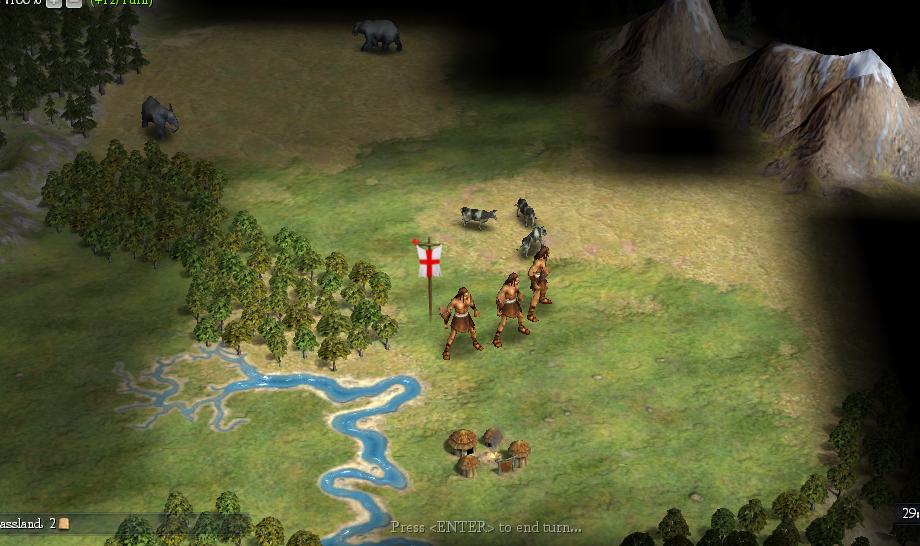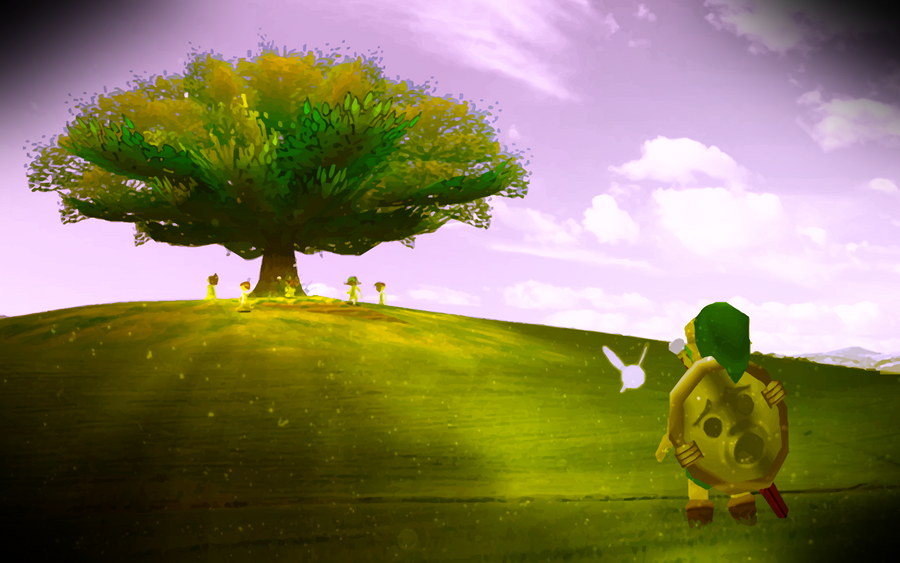As the semester winds to a close, I find myself looking back at our class from a big-picture perspective. What, if anything, will I take away from all of the reading, projects and discussions throughout the semester? What has this class taught me?
It occurred to me this week that one thing in particular that has changed my perspective on gaming is something that I have thus far in life failed to really internalize, and that is: the intentionality of video games. In other words, the most poignant lesson I will take forward with me after this class lies in the fact that every single aspect of every single video game was intentional — there is almost no such thing as a passive feature of a game, because games are 100% coded.
The fact that everything is intentional in video games served, I believe, as the true foundation for this course. Not only does this say a lot about the game world designing process (I distinctly remember the moment when we paused Portal to contemplate the texture of the wall and the lighting in the room, raising the point that someone actively created those aspects of the game), but it also has much to say about many social themes in games.
For example, our discussions of violence and sexism in video games were even more important through the lens of this intentionality; game designers have to answer for the way they depict their characters and world, while authors and filmmakers might get away with these phenomena because they draw upon society in real life. That’s not to say that video game makers don’t use real society as a reference point, but it is slightly different, because video games are typically in made-up worlds that don’t have to adhere to real life. In this sense, it becomes a more pronounced choice on the part of developers to extend societal issues such as violence and sexism into their games.
Additionally, I have developed a refined appreciation for the unique way that video games exist at a crossroads of media. It draws upon traditional forms of narrative for which literature is known, and it has grown over the last few decades from a toy-like phenomenon to a cinematic form of art – complete with creative world design, beautiful musical scores and engrossing story. And, of course, it is interactive, which makes it arguably the most advanced form of media that we have today. And it is only getting more expansive in scope.
So, the intentional nature of game design is probably what I will appreciate most about video games from now on thanks to this class. Also, I believe that this artistic medium is only going to become more and more exciting over the decades to come, as evidenced by the material that we examined in this class. Considering everything, I have no doubt that this is an exciting time for video games.















 The Phendrana Drifts landscape from Metroid Prime always resonates with me, due in large part to the music and atmospheric ambience.
The Phendrana Drifts landscape from Metroid Prime always resonates with me, due in large part to the music and atmospheric ambience. Technically a musical tribute, but I think it captures the essence of the game well.
Technically a musical tribute, but I think it captures the essence of the game well. The hauntingly memorable “dancers on a string” sequence from Bioshock.
The hauntingly memorable “dancers on a string” sequence from Bioshock. This recurring melody from the Legend of Zelda series is a great example of the combination of music and ambient sound effects (reminiscent of a forest, right?).
This recurring melody from the Legend of Zelda series is a great example of the combination of music and ambient sound effects (reminiscent of a forest, right?). I know this one in particular evokes very strong emotions in a lot of people who grew up with Kingdom Hearts.
I know this one in particular evokes very strong emotions in a lot of people who grew up with Kingdom Hearts.